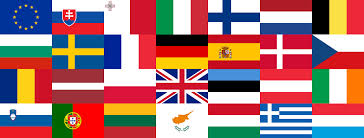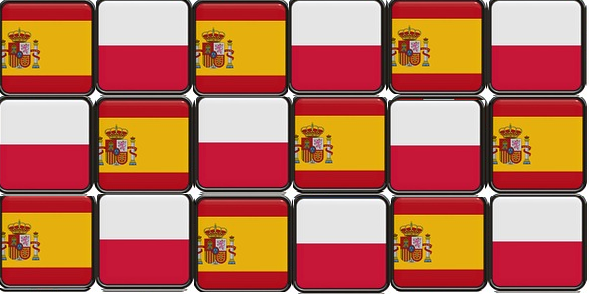
Twitter @NicEU23
Here it is,the first post for my, 24 in 12 years, EU language challenge blog.
I’ve always been passionate about travelling and learning about different cultures but I’ve never really thought of learning a new language as a challenge, it’s always been more of a pastime for me.
So what exactly will my challenge consist of?
Well before I get into the nitty gritty, it would probably be a good idea to give you a bit of background regarding my language abilities.
Firstly, I studied Russian at university and spent a semester abroad in Moscow, so my Russian used to be pretty good. Secondly, I have travelled to Poland on many occasions and have qualifications in Polish but my level of speaking isn’t fluent. Regarding other languages, years ago I studied Spanish but I never managed to reach intermediate level, and I have dabbled in a few other languages.
Ok, that’s enough about me, now it’s time to talk about my EU language challenge…my challenge is to be able speak, to an intermediate level, all 24 EU working/official languages.
Is that gasps I hear?
This may seem like a daunting task but being English, I’m already capable of speaking my nation’s language, so this only leaves 23 languages to master to an intermediate level.
So why am I doing this?
Well, without getting too bogged down in politics, I believe that Europeans can only truly really get on with one another if they try to walk in each other’s shoes, and with this month’s British EU referendum looming, understanding different EU countries cultures and the intricacies of their languages is all the more important.
Anyway, as I mentioned, I don’t want the current political situation in Europe to distract me from my challenge, so it’s now time to mention my Language Learning Game Plan.
My plan is to learn two languages a year for 11 years and Finnish on its own for one year (I hear it’s a tough language to learn), therefore it will take me 12 years to achieve my challenge.
Below is my language learning table.
Language Learning Table
|
Polish
|
Spanish (2016-17)
|
|
Slovak
|
Portuguese (2017-18)
|
|
Bulgarian
|
French (2018-19)
|
|
Croatian
|
Italian (2019-20)
|
|
Slovenian
|
Romanian (2020-21)
|
|
Czech
|
German (2021-22)
|
|
Greek
|
Dutch (2022-23)
|
|
Latvian
|
Swedish (2023-24)
|
|
Lithuanian
|
Danish (2024-25)
|
|
Maltese
|
Estonian (2025-26)
|
|
Irish
|
Hungarian (2026-27)
|
|
Finnish
|
(2027-28)
|
The linguists among you, will notice that every year, I have decided to learn two languages from different linguistic families and every following year, I will learn languages which are related through descent from a common ancestor, called the proto-language of that family.
The learning for each language will be from June to the June of the following year, and the way I will be assessed on my language level will be an accredited exam and a short YouTube video of me speaking the language with a native speaker (scary stuff).
Ok let the challenge begin.


